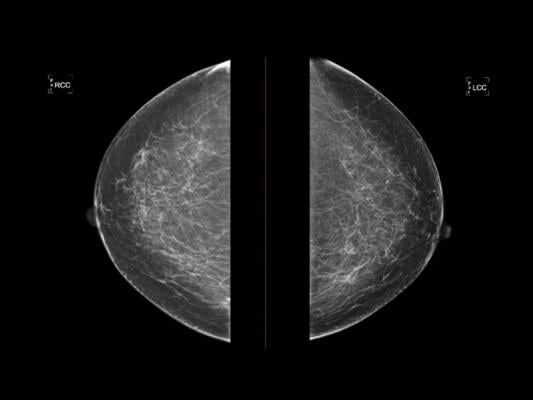
Getty Images
November 1, 2022 — Onsite Women’s Health, a leading national provider of breast health services, announces with Whiterabbit.ai and Washington University in St. Louis the results of a longitudinal study of breast density using artificial intelligence (AI). RSNA (Radiological Society of North America) accepted the scientific abstract submitted by researchers from Onsite, Whiterabbit and Washington University in St. Louis for an oral presentation, titled: Artificial Intelligence and Consistency in Patient Care: A Large-Scale, Longitudinal Study of Breast Density Assessment at the 108th Scientific Assembly and Annual Meeting (Date/Time of Session: 11/28/2022 1:30-2:30 pm CT).
“Higher density breast tissue on mammograms means higher risk for breast cancer,” says Dr. Susan Holley, clinical director of Onsite Women’s Health and presenter of the abstract. “Therefore, breast density is an important variable to get right. We wanted to know if an AI tool could help us be right more often, over the long-term.”
“We are eager to share the findings of this large-scale retrospective study as it reveals fascinating trends about the assessment of breast density over time by radiologists and our AI software, WRDensity. We believe the consistent assessment of breast density is vital to more effective patient management that moves us towards the goal of precision medicine. I’m enthusiastic that new technologies may make a difference in this noble endeavor,” says Jason Su, Whiterabbit’s co-founder and chief technology officer. “We are grateful to have been able to partner with Onsite and Washington University in St. Louis to conduct this study. Their interest in our AI tool and engagement with us has and will continue to be critical to its ongoing development.”
The team hopes to expand upon this work to explore implications for supplemental screening, and how longitudinal changes in breast density might further inform our understanding of breast cancer risk.
“The diversity of our research team with representation from real world practice, industry, and academic researchers allows us to pursue really exciting and clinically relevant questions,” concludes Aimilia Gastounioti, assistant professor of Radiology and director of the Breast Image Computing Lab at Washington University in St. Louis. “The advent of AI is poised to change the delivery of health care dramatically in the near future. With academic researchers, physicians and industry partners working hand-in-hand, we can bring all our strengths together to look at questions that have big implications for breast imaging and patient care.”
For more information: http://www.onsitewomenshealth.com,


 March 21, 2025
March 21, 2025 







